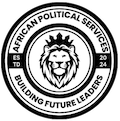Archival Research
Objective: To explore historical documents, artifacts, and manuscripts for documenting cultural heritage.
Approach: Access libraries, archives, and digital repositories to collect and analyze historical records.
Preserving and understanding cultural legacies through meticulous research and documentation.
Objective: To explore historical documents, artifacts, and manuscripts for documenting cultural heritage.
Approach: Access libraries, archives, and digital repositories to collect and analyze historical records.
Objective: To collect stories from elders and community leaders, preserving traditional knowledge and narratives.
Approach: Conduct structured interviews and focus group discussions, ensuring ethical and respectful engagement with participants.
Objective: To gather on-ground data through site visits to heritage sites and museums.
Approach: Document observations with photographs, notes, and sketches, and engage with local guides or experts for additional context.
Objective: To study cultural practices and traditions using participant observation and ethnographic techniques.
Approach: Immerse in communities to observe daily life, rituals, and practices, fostering deeper understanding and connection.
Conducting thorough research across various domains requires tailored methodologies to ensure accuracy, depth, and relevancy. Below is an outline of recommended research methods, emphasizing data reliability and comprehensive analysis:
